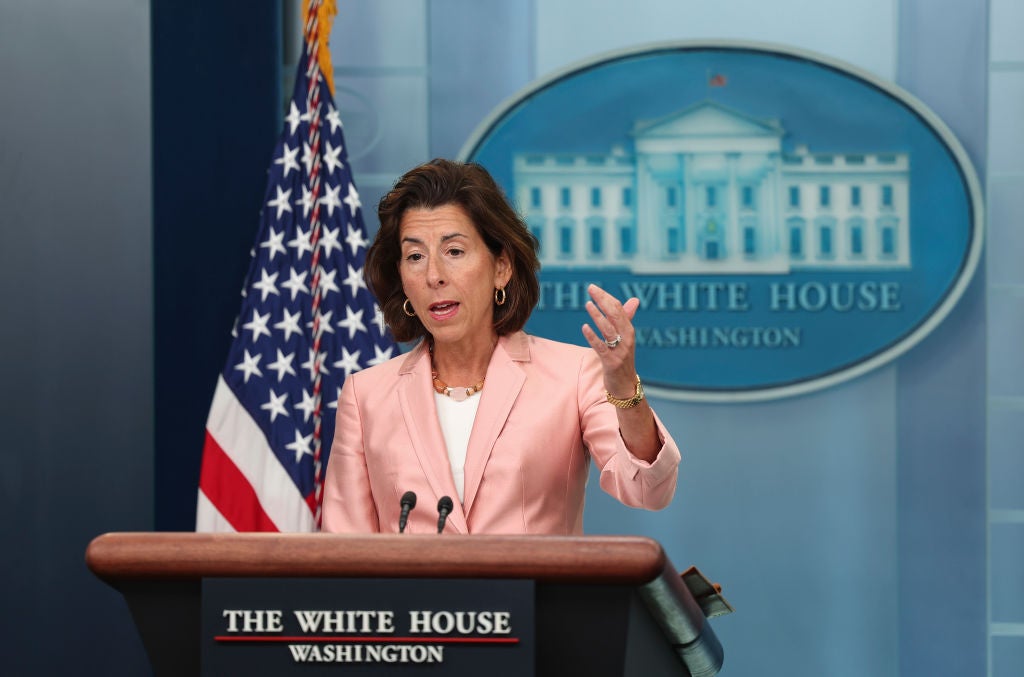
On Tuesday 6 September, the Biden administration in the US outlined new guidelines to its much-anticipated $50bn CHIPS and Science Act funding, aimed at building up the domestic semiconductor industry. However, one of its caveats is set to fan the flames of ever-rising geopolitical tensions between Washington and Beijing.
“Companies who receive CHIP funds can’t build leading-edge or advanced technology facilities in China for a period of ten years,” explained US Commerce Secretary Gina Raimondo in a White House press briefing on 6 September. “Today we begin to reverse the decline and lead the world again in semiconductor innovation and research and development. With this funding, we are going to make sure that the [US] is never again in a position where our national security interests are compromised or key industries are immobilised due to our inability to produce essential semiconductors here at home.

Discover B2B Marketing That Performs
Combine business intelligence and editorial excellence to reach engaged professionals across 36 leading media platforms.
“This past year, we saw the impact of the chip shortage on American families when car prices drove one-third of inflation because of a lack of chips, factory workers were furloughed, household appliances were often unavailable, all because of a lack of semiconductors.”
It comes as business groups have pushed for more government support in an effort to reduce reliance on China for semiconductors. They are faced with a global microchip shortage which has slowed production.
The CHIPS Act wants to correct a long-term imbalance in the US market, more specifically to establish and expand domestic production of leading-edge semiconductors. Today, the country consumes more than 25% of the world’s leading-edge chips, but produces none, according to the White House. Meanwhile the country consumes 30% of the world’s ‘mature node’ chips, but produces just 13%. “We need to fix that,” said Raimondo.
“Companies who receive [CHIPS] money can only expand their mature node factories in China to serve the Chinese market,” she added.

US Tariffs are shifting - will you react or anticipate?
Don’t let policy changes catch you off guard. Stay proactive with real-time data and expert analysis.
By GlobalDataThe funding will help ensure that the next generation of US semiconductor technology is developed and produced in the US. “In the process of doing all this, we will create tens of thousands of good-paying manufacturing jobs and more than a hundred thousand construction jobs,” Raimondo added.
Meanwhile, the Chinese Embassy in Washington has opposed the semiconductor bill, calling it reminiscent of a “Cold War mentality”.
The US and China are locked in a long-running dispute over trade and technology as part of a wider ongoing trade war initiated under former US President Donald Trump. For many years now, business groups have pushed for more government support in an effort to reduce reliance on China, but the transition will not be easy.
Some US chipmakers are already experiencing the impact of Washington’s new vision for the global semiconductor market. In early August, Nvidia and AMD were told by US officials to stop the sale of AI chips to China.
The restrictions are a “gut punch” for Nvidia, Dan Ives of Wedbush Securities told the BBC in early September. Meanwhile, Bloomberg business editor Peter Elstrom tweeted that the law would “set off alarm bells about escalating tensions between the US and China… The US restrictions threaten to deal a heavy blow to China’s ability to innovate. The AI accelerators are used to develop cutting-edge technologies such as autonomous driving and image recognition.”
Raimondo’s CHIPS announcement only adds fuel to this fire in what appears to be a win for US semiconductor manufacturing, despite the transitional pain for certain companies, and a big loss for the Chinese economy on numerous levels.





